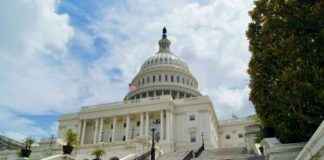Federal prosecutors are easing up on their crackdown on cryptocurrency businesses, providing some relief to the industry. This decision comes after President Donald Trump’s re-election, with the U.S. Attorney’s Office in Manhattan signaling a reduction in litigation against cryptocurrency firms following key convictions and settlements with prominent players like FTX, Binance, and Terraform Labs.
The appointment of Jay Clayton, former chair of the Securities and Exchange Commission, as the new U.S. attorney for the Southern District of New York further indicates a shift in policy towards digital assets. Industry leaders, including companies like Coinbase and Ripple (XRP), have long been advocating for clearer compliance guidelines and regulations from regulatory bodies like the SEC.
President Trump’s administration is also hinting at potential leadership changes within the SEC, with Gary Gensler possibly considering an early retirement. This change in leadership could bring about new perspectives and approaches to regulating digital assets beyond just the SEC’s jurisdiction.
Industry experts like Nic Carter have raised concerns about a coordinated effort across various government agencies to stifle crypto businesses and limit access to financial services for digital assets. Carter’s recent discussions in Washington have shown a growing bipartisan interest in stablecoin tokens and a desire to work on crypto-related policies.
Furthermore, Rebecca Rettig, chief legal and policy officer at Polygon, has highlighted the progress towards favorable regulations for cryptocurrencies in the U.S., potentially surpassing those in Europe. Rettig expects stablecoin regulations to be in place by 2025, with broad congressional support for a clear approach to regulating digital assets.
President Trump has also discussed the possibility of establishing a crypto council that would bring together industry leaders, law enforcement, and policy experts to guide the development of crypto regulations. This council could lead to legislative changes shaping the market structure, similar to the EU’s MiCA framework, or rulemaking within regulatory agencies, or a combination of both approaches.
Overall, the easing of cryptocurrency lawsuits by federal prosecutors and the potential shift in regulatory policies under the new administration offer a glimmer of hope for the industry. With growing bipartisan support and discussions around clearer regulations, the future of cryptocurrencies in the U.S. looks promising.


















